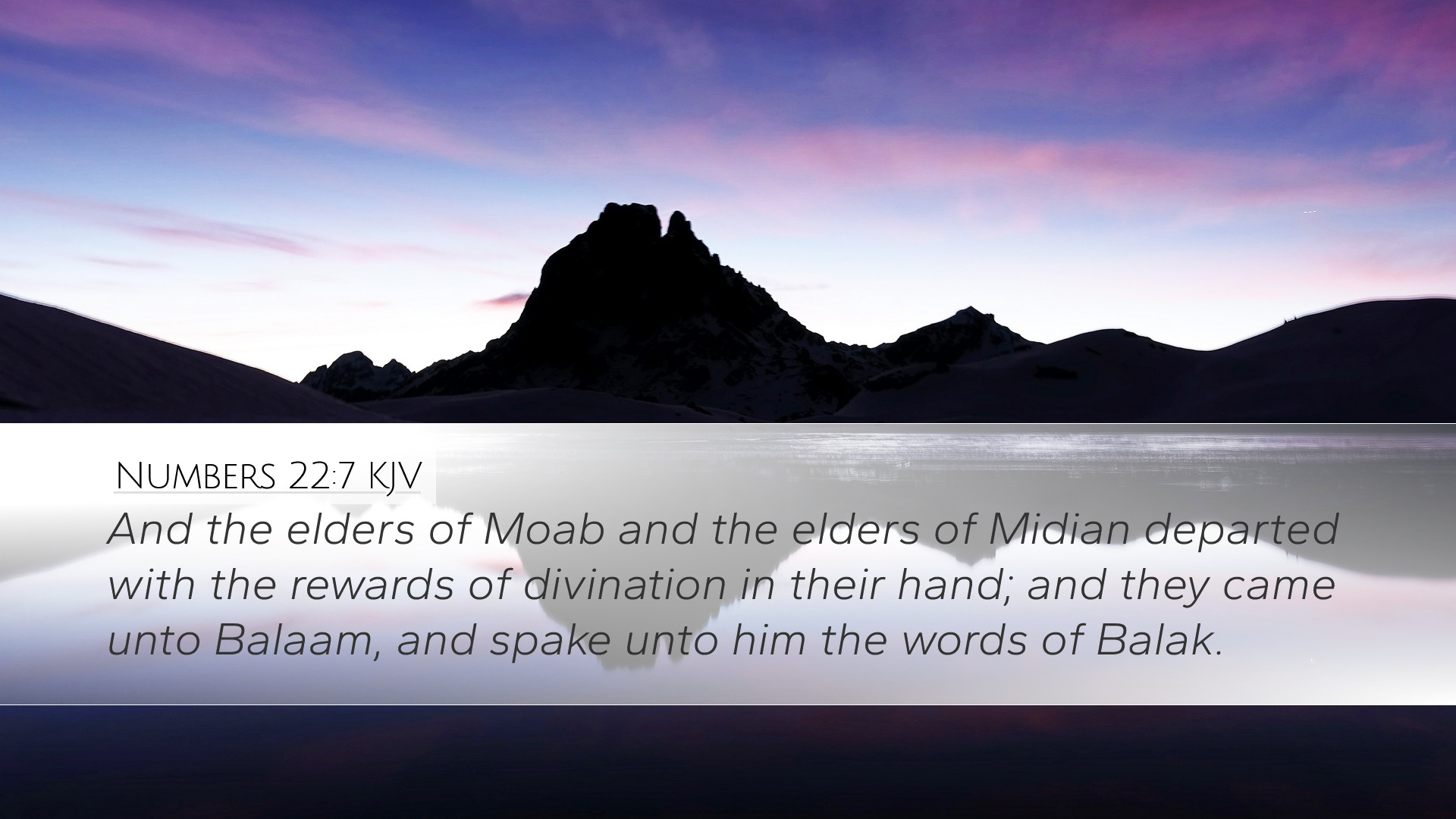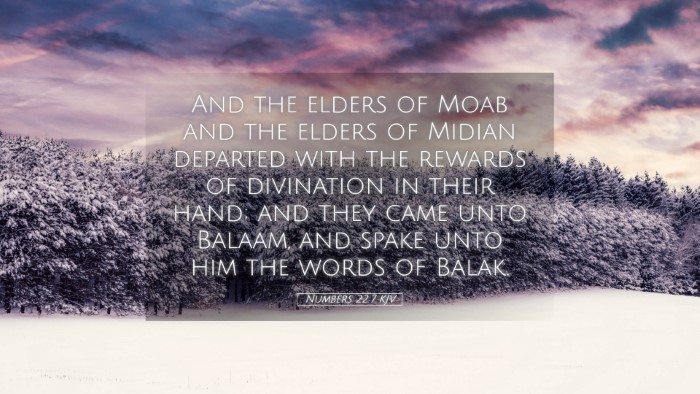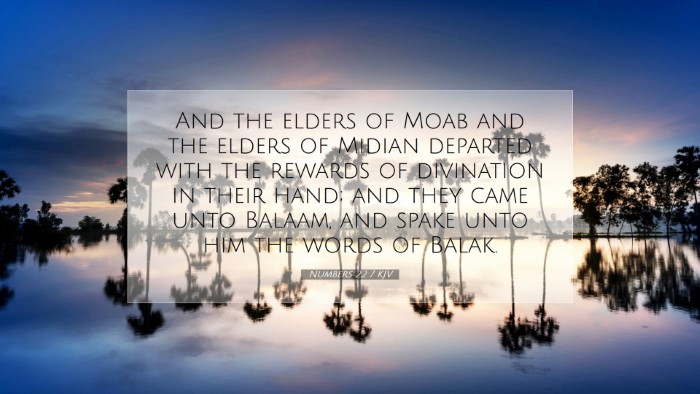Commentary on Numbers 22:7
Verse Reference: Numbers 22:7 - "And the elders of Moab and the elders of Midian departed with the rewards of divination in their hand; and they came unto Balaam, and spake unto him the words of Balak."
Contextual Background
The passage in Numbers 22:7 occurs during Israel's encampment near Moab as they prepared to enter the Promised Land. This period is characterized by geopolitical tensions, where nations surrounding Israel were alarmed at their exponential growth and military strength under divine guidance.
Insights from Commentaries
Matthew Henry's Commentary
According to Matthew Henry, this verse highlights the desperation of Balak, the king of Moab, who sought the supernatural intervention of Balaam—a known diviner—to curse the Israelites. Henry emphasizes the lengths to which Balak would go to secure this outcome, stressing the futility of opposing God’s plans. He notes that the "rewards of divination" signify not just material payment but also signify a spiritual and moral decline; Balak's request reflects an understanding of the spiritual realm, albeit perverted. This illustrates how worldly leaders often resort to sorcery and divination in their attempt to thwart God’s people.
Albert Barnes' Notes
Albert Barnes elaborates on the roles of the elders of Moab and Midian, noting that their alliance illustrates a common theme in the Old Testament: the collaboration of nations against Israel. Barnes contextualizes the “rewards of divination” within the broader cultural practices of the ancient Near East, where divination was a prevalent method of seeking guidance from deities. He points out that the elders' approach to Balaam signifies a misplaced faith in human intermediaries rather than reliance on God. Ultimately, Barnes warns readers of the dangers inherent in seeking guidance through non-biblical means.
Adam Clarke's Commentary
Adam Clarke provides a detailed examination of the characters involved in this interaction. He identifies Balaam as a figure who straddles the line between prophet and pagan, a man who was aware of the God of Israel but was motivated by greed and ambition. Clarke notes that the "elders" mentioned in this verse were likely representatives of both Moab and Midian, illustrating the seriousness of Balak's intentions. Clarke emphasizes that the rewards they carried were not merely bribes but were also a representation of the spiritual battle in play—an attempt by human means to subvert divine intention.
Theological Considerations
This verse not only records historical events but also engages deep theological themes relevant to the church today. The collaboration of worldly powers to oppose God’s chosen people serves as a reminder that opposition to God's agenda is a recurring theme throughout history. Additionally, the attempt to manipulate divine favor through sin (represented by divination) presents a moral lesson on the nature of true faith versus false spirituality.
Practical Applications
- Discernment in Leadership: Pastors and church leaders must exercise discernment similar to Balaam when faced with influences that seek to sway the mission of the church.
- Rejection of False Spirituality: This verse calls believers to reject methods of divination and other non-biblical practices. Faith should solely rest in the sovereignty of God.
- Awareness of Spiritual Warfare: Just as Balak attempted to use Balaam against Israel, modern believers must recognize the spiritual battles that exist in their lives and communities.
- Trust in Divine Provision: In times of uncertainty and threat, believers should remain steadfast in God’s provision, understanding that no curse from man can hinder God’s blessings.
Conclusion
Numbers 22:7 encapsulates a vibrant, multifaceted dialogue about the relationship between God’s people and the world. By examining the interactions between Balak and Balaam, alongside the commentary insights from esteemed scholars, it becomes clear that reliance on God, rather than human means, is paramount. This passage invites readers to reflect on their faith practices and urges a communal call to uphold the sanctity and sovereignty of God amidst opposing forces.


